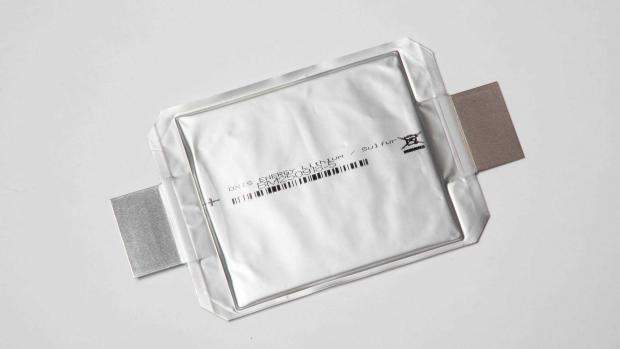
Breaking News
 The Vain Struggle to Curb Congressional Stock Trading
The Vain Struggle to Curb Congressional Stock Trading
The Tesla Model S Is Dead. Here's Why It Mattered
 America's First Car With Solid-State Batteries Could Come From This Little-Known EV Maker
America's First Car With Solid-State Batteries Could Come From This Little-Known EV Maker
 POWERFUL EXCLUSIVE: Learn Why Silver, Gold, & Bitcoin Plunged After JD Vance Announced...
POWERFUL EXCLUSIVE: Learn Why Silver, Gold, & Bitcoin Plunged After JD Vance Announced...
Top Tech News
 How underwater 3D printing could soon transform maritime construction
How underwater 3D printing could soon transform maritime construction
 Smart soldering iron packs a camera to show you what you're doing
Smart soldering iron packs a camera to show you what you're doing
 Look, no hands: Flying umbrella follows user through the rain
Look, no hands: Flying umbrella follows user through the rain
 Critical Linux Warning: 800,000 Devices Are EXPOSED
Critical Linux Warning: 800,000 Devices Are EXPOSED
 'Brave New World': IVF Company's Eugenics Tool Lets Couples Pick 'Best' Baby, Di
'Brave New World': IVF Company's Eugenics Tool Lets Couples Pick 'Best' Baby, Di
 The smartphone just fired a warning shot at the camera industry.
The smartphone just fired a warning shot at the camera industry.
 A revolutionary breakthrough in dental science is changing how we fight tooth decay
A revolutionary breakthrough in dental science is changing how we fight tooth decay
 Docan Energy "Panda": 32kWh for $2,530!
Docan Energy "Panda": 32kWh for $2,530!
 Rugged phone with multi-day battery life doubles as a 1080p projector
Rugged phone with multi-day battery life doubles as a 1080p projector
 4 Sisters Invent Electric Tractor with Mom and Dad and it's Selling in 5 Countries
4 Sisters Invent Electric Tractor with Mom and Dad and it's Selling in 5 Countries
3rd Gen Lithium-Sulfur Batteries From Alise Project Reach 325 Wh/kg

We have already told you about lithium-sulfur batteries. Or Li-S, if you prefer you. Many research institutes deal with them for their potential of being lighter and having more power density than lithium-ion batteries. The Alise Project has recently announced it has created a new prototype that can deliver 325 Wh/kg. Closer to the production version goal of 500 Wh/kg.
Funded by the European Union, the Alise Project has the participation of 16 partners from 5 different countries. Williams Advanced Engineering and Seat are among them, but the company that will produce these batteries is probably Oxis Energy.
The company has already set an agreement with Codemge Participações S.A. to have the first li-s battery production plant in Minas Gerais, Brazil – a state with abundant sulfur mines. Besides that, Oxis has also announced it will have an electrolyte and cathode active material factory at the Kenfig Industrial Estate Port Talbot, in Wales.
Oxis has already produced a 425 Wh/kg li-s battery, but that is the "state of the art," according to Christophe Aucher, principal researcher of the Alise Project. "At Alise, we developed a compromise between lighter, smaller, big enough, and able to work on power – with a faster charging rate. That is why we reached 'only' 325 for the gravimetric energy density," he told InsideEVs.



